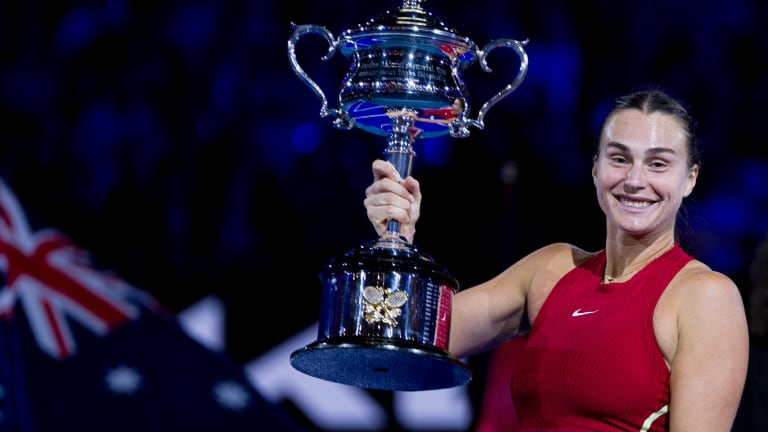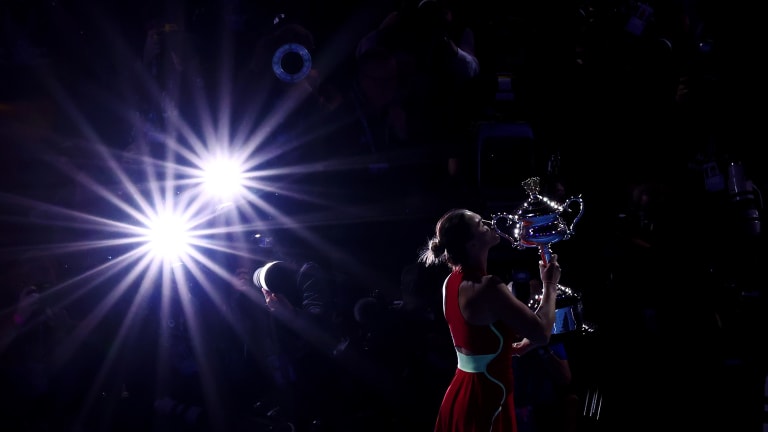Australian Open
Aryna Sabalenka, not afraid to keep failing until she succeeded, wins another Australian Open
By Jan 27, 2024Australian Open
Australia at Last: Reflections on a first trip to the AO
By Jan 29, 2025Australian Open
Alexander Zverev must elevate his game when it most counts—and keep it there
By Jan 27, 2025Australian Open
Jannik Sinner draws Novak Djokovic comparisons from Alexander Zverev after Australian Open final
By Jan 26, 2025Australian Open
Alexander Zverev left to say "I'm just not good enough" as Jannik Sinner retains Australian Open title
By Jan 26, 2025Australian Open
Jannik Sinner is now 3-0 in Grand Slam finals after winning second Australian Open title
By Jan 26, 2025Australian Open
Taylor Townsend and Katerina Siniakova win second women's doubles major together at the Australian Open
By Jan 26, 2025Australian Open
Madison Keys wins her first Grand Slam title at Australian Open by caring a little bit less
By Jan 25, 2025Australian Open
Henry Patten, Harri Heliovaara shrug off contentious first set to win Australian Open doubles title
By Jan 25, 2025Australian Open
Aryna Sabalenka takes a rare loss in Australian Open slugfest
By Jan 25, 2025Australian Open
Aryna Sabalenka, not afraid to keep failing until she succeeded, wins another Australian Open
“There’s not going to be big wins without really tough losses,” the 25-year-old said after her convincing victory over Zheng Qinwen.
Published Jan 27, 2024
Advertising

In the final, Aryna Sabalenka showed how complete and tactically efficient her game has become.
© © Andy Cheung / ArcK Images / Getty Images
Advertising
Advertising
Advertising

The 25-year-old's second Australian Open title was the most convincing showcase for her durable, high-powered talents yet.
© Getty Images